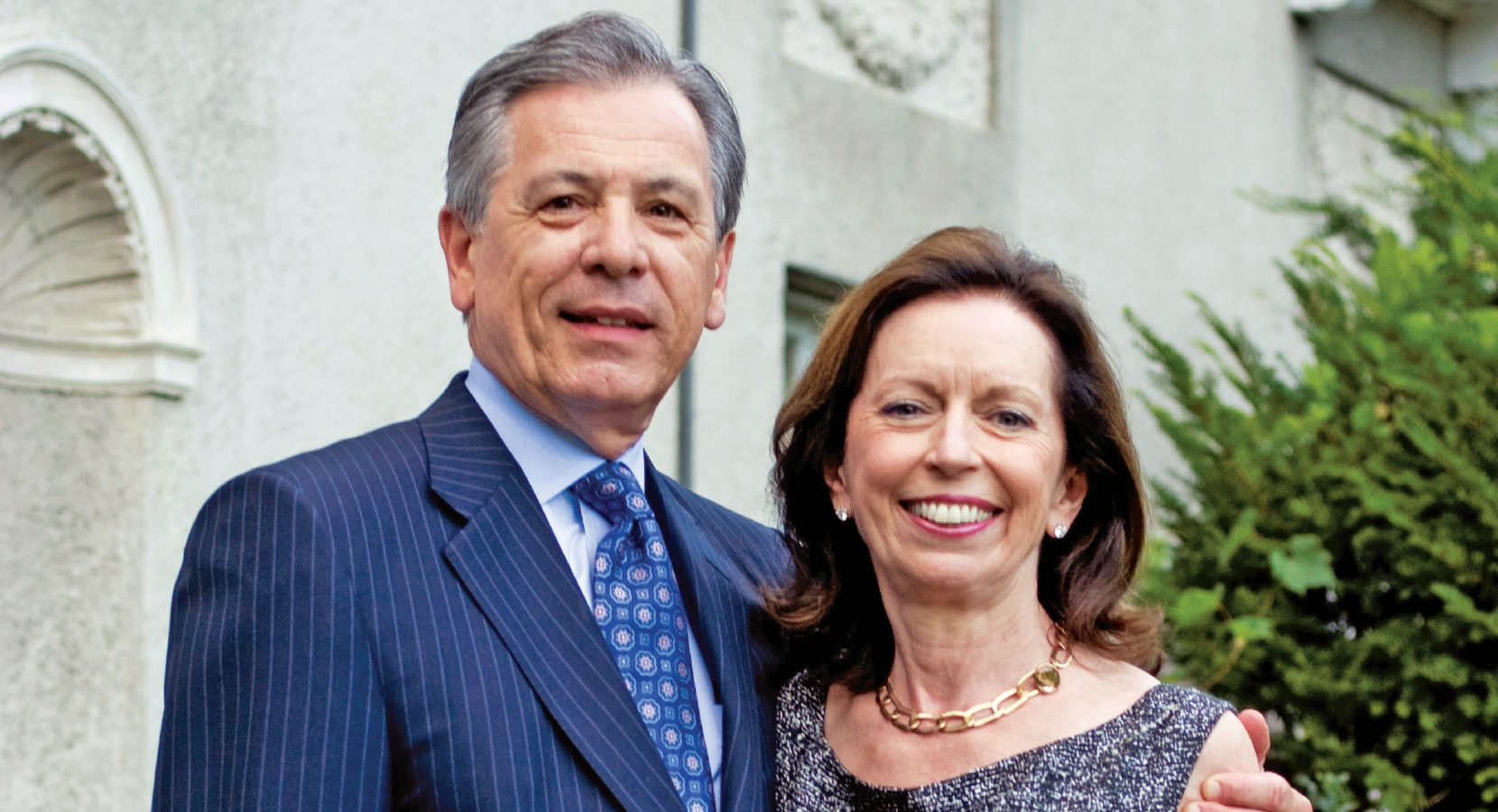
McGillycuddy and Logue elevate women’s cardiovascular health
“Creating this dedicated focus in an institution with a history of cardiovascular strengths could make a real difference in research and treatment.”
—KATHLEEN MCGILLYCUDDY
At the Brigham, a steady trail of firsts in cardiovascular medicine—from the first successful heart transplant in New England to important drug discoveries—has saved thousands of lives. Yet despite these major gains in knowledge, women with heart disease still experience disparities in treatment and survival compared with men.
Kathleen McGillycuddy, chair of the Brigham’s Heart & Vascular Advisory Board and member of the President’s Advisory Board, together with her husband, Ron Logue, want to help the hospital narrow this gender gap. When they heard about plans to recruit a new position dedicated to women’s cardiovascular health, they made an endowed gift of $2 million to establish the McGillycuddy-Logue Distinguished Chair in Cardiology.
“I was elated to hear of Kathleen and Ron’s extraordinary gift,” says John F. Keaney Jr., MD, the Brigham’s chief of the Division of Cardiovascular Medicine since 2019. “One of my highest priorities is to recruit more women to our cardiovascular medicine faculty and create a director of women’s cardiovascular health position that will lead, coordinate, and propel the hospital’s efforts to improve cardiovascular outcomes for women.”
McGillycuddy and Logue say Keaney’s sincere and heartfelt commitment to women’s cardiovascular health resonated with them. “Creating this dedicated focus in an institution with a history of cardiovascular strengths could make a real difference in research and treatment,” says McGillycuddy. “The Brigham is in an incredible position to be a global leader in this area, and we’re excited to be part of making that happen.”
Logue adds, “Pioneering cardiovascular research is looking at the differences between women and men. New technologies are providing the opportunity to speed up this work and discover what is now unknown. It’s incredibly worthwhile to support an area that’s changing and evolving and will create an impact for many.”
The couple credits the Brigham for leading such research while focusing on patients and orchestrating a coordinated approach to care. “Organizations have a personality, just like human beings, and the Brigham exudes collaboration and positive attitude,” McGillycuddy says. “Through everything the staff does, you can feel the powerful and meaningful mission at work.”